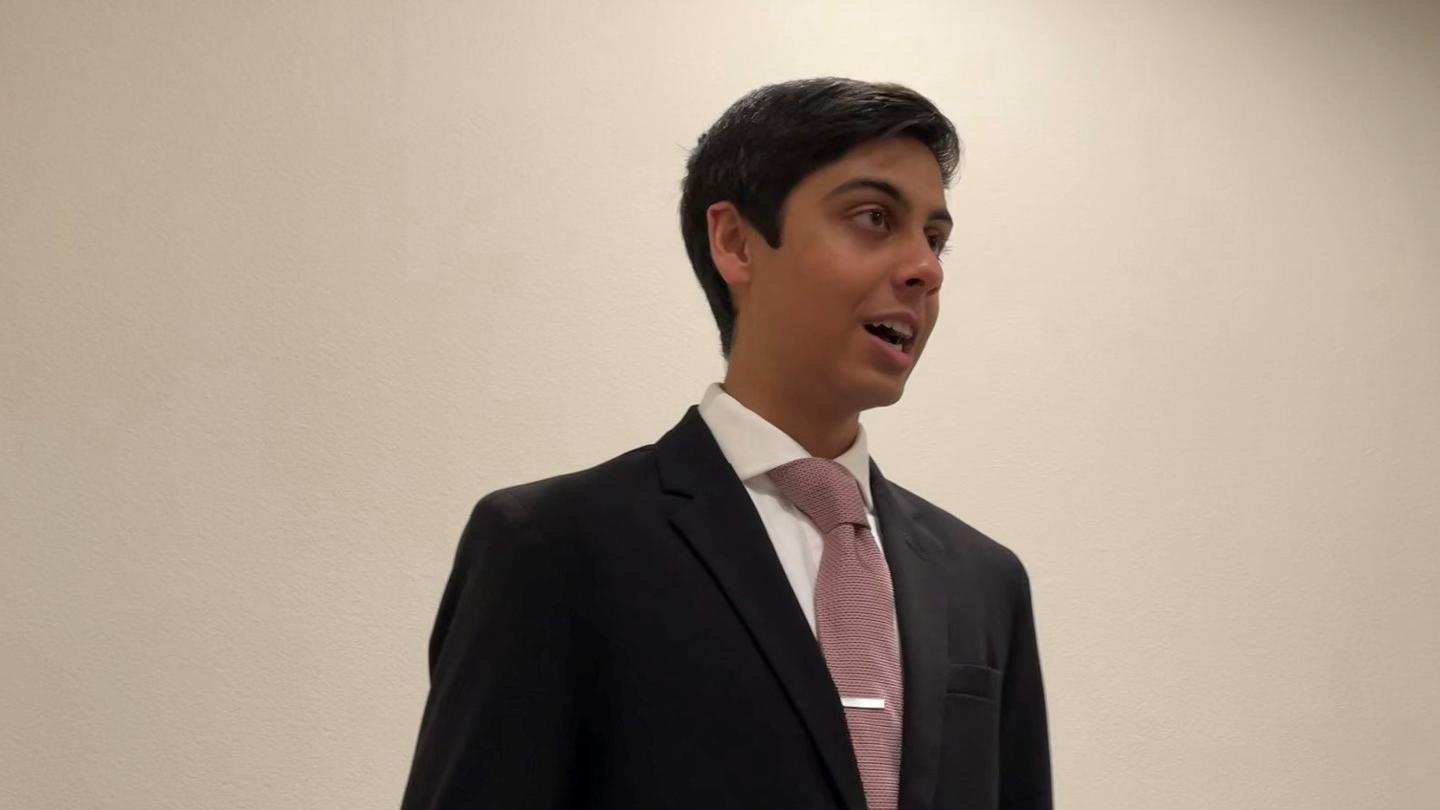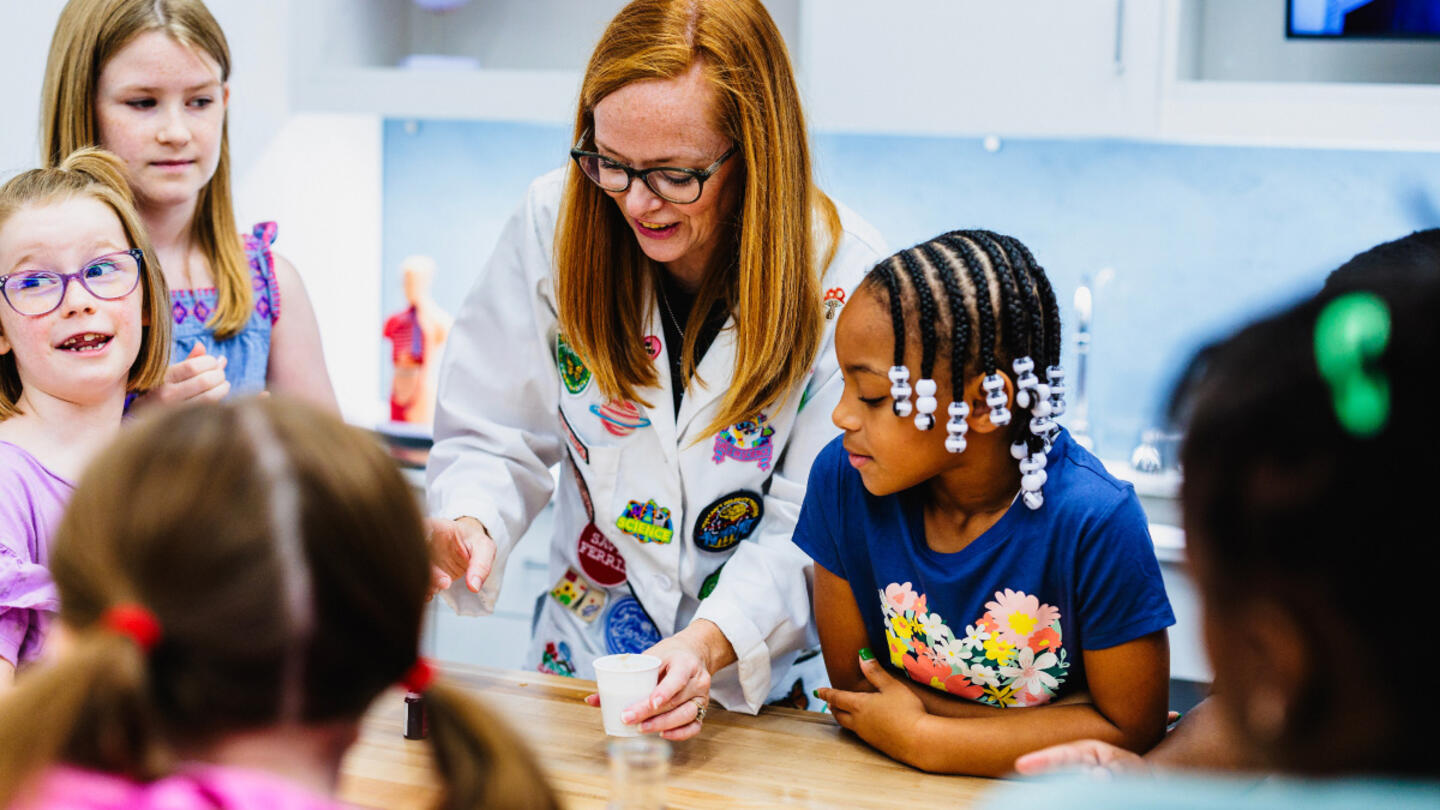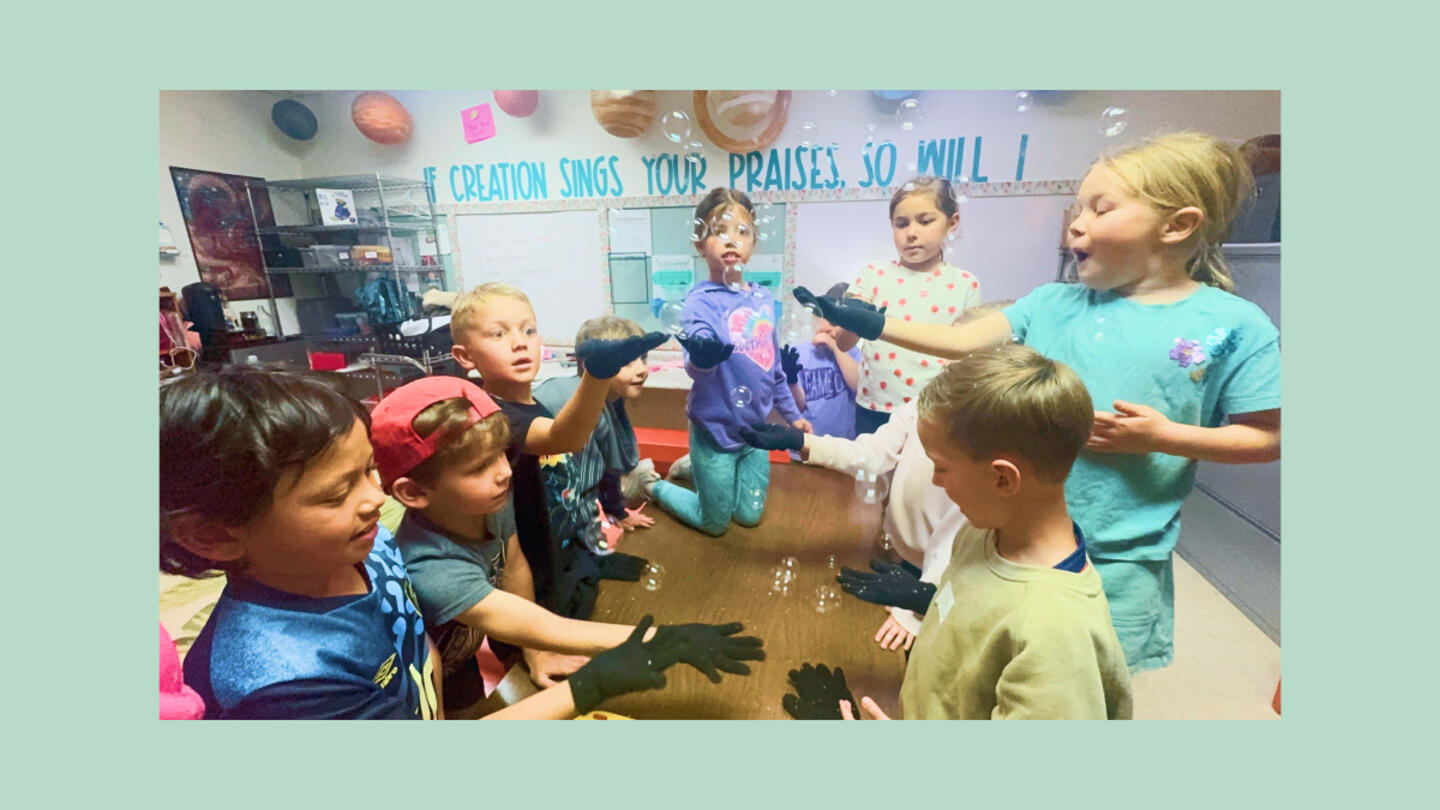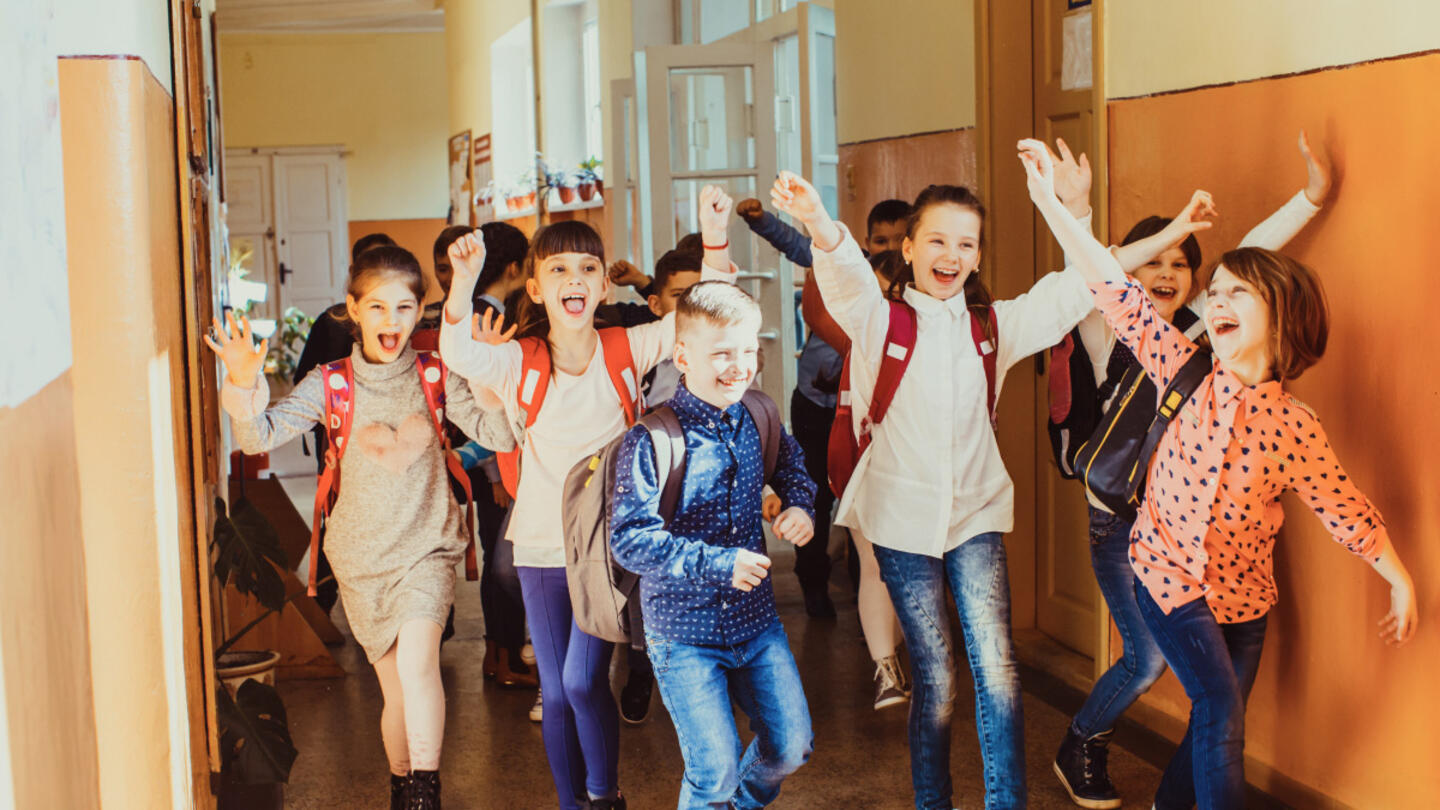Mithil Pujar seems wiser than his 18 years would suggest. As a research assistant with yes. every kid., an organization in the Stand Together community dedicated to ensuring every student receives an individualized education, Mithil works to amplify students' voices in education conversations. In high school he worked with the San Diego County Office of Education and the Poway Unified School District to elevate his peers' perspectives and paint a picture of what better education could look like.
Now a freshman at Minerva Schools at the Keck Graduate Institute — a university program he chose for its emphasis on educational innovation — Mithil continues to advocate for a school system that benefits all students.
In October, Mithil spoke on a student panel at the I PROMISE Huddle, an event in Akron, Ohio, hosted by the Lebron James Family Foundation that addresses some of the biggest issues and barriers facing students. Stand Together partnered with the Lebron James Family Foundation to host the inaugural Huddle and elevate conversations that challenge these barriers and work towards a better education for all students.
We caught up with Mithil recently about the value of student-centric education, what kids really want out of school, and how to help students reach their unique potential.
Stand Together: Tell us about your work with yes. every kid.
Mithil: We're dedicated to helping every student find their dignity and reach their full potential. We're working to make sure that every student is able to access opportunities and gain a personalized education that works for them. As a research assistant, I've been helping find different models that are working within this new paradigm of education. Most of my work previously has been on the district level and county level. yes. every kid. has been working on the state level, and it's been really eye-opening.
We're not focusing solely on one type of school; it's for anybody who's willing to put the focus on kids first and to help champion change that will improve the lives of students. The vision of yes. every kid. is about helping every student reach their full potential — no matter where they are and where they come from — so they can find their unique gifts, contribute to society, and fulfill themselves.
What does individualized education mean to you?
Individualized education means that students have a voice and choice in an education that's meaningful to them. It's a combination of multiple factors like addressing student interests in learning and understanding what's useful, practical, and meaningful to them. [The goal is] that students can do things that they want to do and have the skillset to be able to do them.
I tend to use the terms "learner-centered" or "learner-focused" education because they define the purpose behind why education systems exist. Learner-focused education tends to outline how [students] want to develop, and in a way that's best for them.
Was there a pivotal moment where you realized that there was a more effective path for students to reach their potential?
Definitely. I went to a high school that was ranked very highly. We were winning all these accolades; every year we sent kids to Ivy League schools. When I was a sophomore, I started realizing the amount of stress that students were under — the lack of sleep and the emphasis on tests. There was nothing that they were meaningfully accomplishing within school and all the work basically had them running in circles.
That idea — that we're not developing usable skills, helping students to reach their potential, finding out what they're interested in, and respecting their individuality and their ability to learn — that kind of pushed me to say, 'Well, maybe there is a better way. What does that look like?'
I've always believed that if I don't like something, I should find a way to change it before I make noise about it. So that started my work with my school and my district. I conducted a survey across my high school to get some anecdotal feedback from students. I wanted to figure out: what happens if we give them a platform to share what their life is like at school?
What did you learn from the survey?
Kids were given a voice for how they would change their education for one of the first times at our school. I saw these massive outpourings of emotions and experiences. With about 500 responses — that was roughly a quarter of our school — not a single person who responded to this survey reported getting the nationally recommended amount of sleep. The average amount of homework that kids reported having was about four hours per day.
Quite a few said they wanted the focus to be on learning above studying for tests, and they were eager to learn about things that they were interested in rather than trying to fulfill minimums or do what looks good on a college resume. Quite a few talked about how the current system was not working for them because they were limited by certain systemic constraints at our school. Others talked about how, even though we were the so-called elite high school that was college-based, college is not the best pathway for everybody. A lot of them voiced a concern that there was a lack of vocational training, and that community college was not really talked about all that much.
What do you see as some of the barriers to creating an education system that benefits all students?
The system has to be fundamentally different. I think that's one of the problems, is that it requires a mindset shift. Beyond that, I think structures of funding. Instead of it being tied to student needs, we have it tied to ZIP code or place of residence. That limits students. If there's a school that they want to attend, if there's something innovative happening that they want to be a part of, they cannot attend that school because of limitations on where that money is going.
What is your goal for the future of education?
My goal is to help every student find their unique gifts and reach the fullest of their human potential. I use that word, human, because we're living in an age of incredible automation. Our modern-day public schools were designed in the industrial revolution, basically to prepare students for obedience and repetitive factory work. Right now we have machines that can obey directions and do exactly what they're told better, faster, and more accurately than any human could ever do. We should stop preparing students for those jobs that machines can do.
Humans have the skills to be able to communicate well and to think creatively and come up with new solutions to problems in ways that machines simply can't at this point. My goal for education is to help students develop that potential and to think creatively. My goal for education is to help students really find out what they want to do, what they're interested in — from a human perspective — and help them develop that so that they're constantly adaptable in our ever-changing world.
***
Learn more about Stand Together's education efforts and explore ways you can partner with us.



